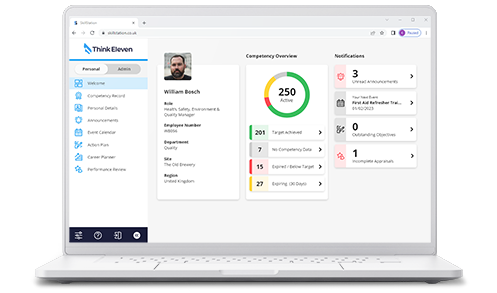Scrum: The Basics eLearning Course
Overview
Welcome to Audio Learning from Assemble You.
If you're a project manager, we don't need to tell you how much pressure comes with the job. It's up to you to lead the charge of a large-scale operation that will end up with a completed project that's satisfying for the stakeholders. A lot of money and company time is invested in your chances of success. You need to decide on a method that will guarantee that success.
Scrum is one such method. Scrum is one of several frameworks adhering to the Agile approach to project management. For those unfamiliar with it, Agile is an approach that breaks big projects down into manageable chunks called iterations, which are then worked on by cross-functional teams.
In this track, we explain the basics of Scrum and the key roles needed when using the Scrum method.
Learning Objectives
- Learn the relationship between Agile and Scrum, and where they differ.
- Learn the main principles and roles of the Scrum framework.
Target Audience
Scrum is used by teams at Google, Apple, Facebook, Spotify, Amazon, Netflix, IBM, Deloitte, and thousands of other companies. This is aimed at anyone looking to mimic the successful project management approach of these corporations, whether you’re part of a product team, an HR team, a sales team, or a marketing team.
This course has a minimum of 25 learner registrations for us to provide a quotation.
Request a Quotation- Language
- UK
- Date last updated
- 5/31/2022
- Duration
- 15 Minutes
- Suitable Devices
-
- PC
- Phone
- Tablet
- Audio is Required
-
- Yes
- Includes Video
-
- No
- Downloadable Resources
-
- Infographic
- Transcripts
- Completion Criteria
-
- Visit all pages
- Pass Mark
-
- None
- Course Technology
-
- HTML5
- SCORM 1.2
- Can be customised
-
- Available at an Additional Cost
- Accreditation or Endorsements
-
- No
- Languages
-
- English
